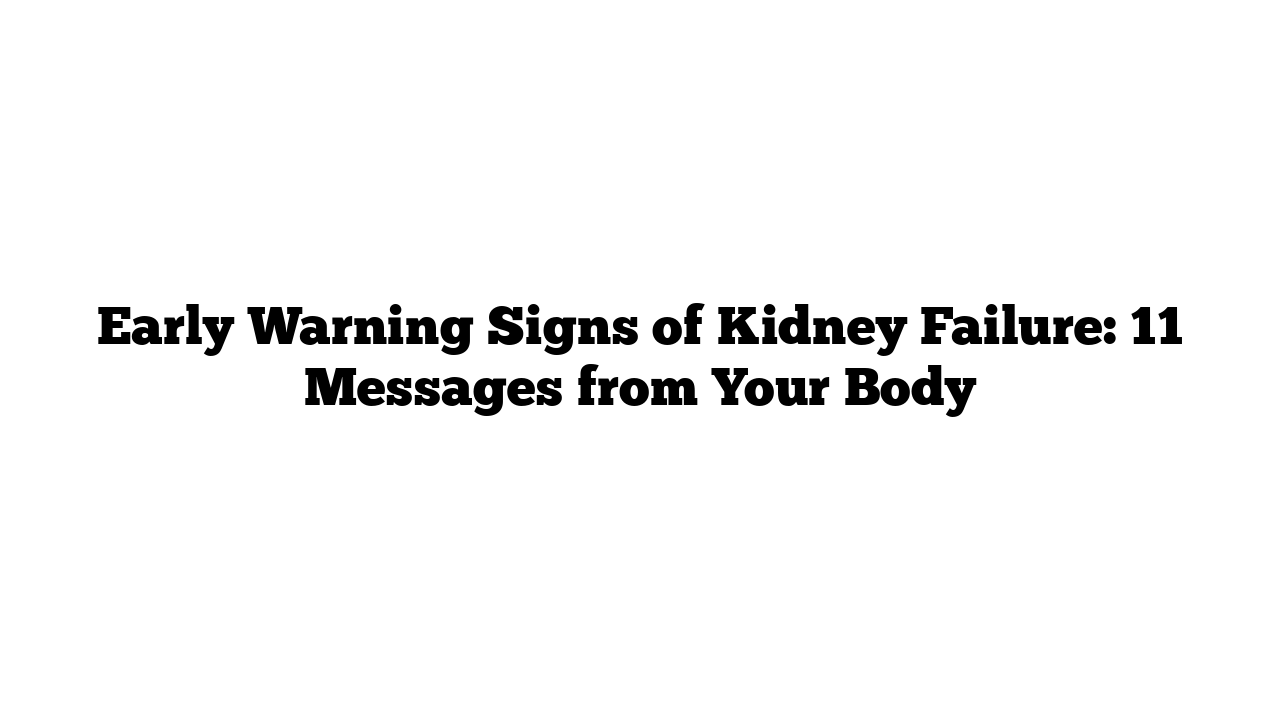Kidney failure can be a silent condition, often showing subtle signs before it becomes severe. As a board-certified kidney doctor, I frequently encounter patients who didn’t recognize these early warning signs until it was too late. According to the CDC, over 35 million adults in the United States have kidney disease, yet nine out of ten don’t realize it. Understanding your body’s signals is crucial for early intervention.
Why Early Detection Matters
Recognizing the early symptoms of kidney disease can help slow its progression and, in some cases, prevent kidney failure altogether. Here are 11 key signs to be aware of:
1. Unexpected Changes in Urine
Pay attention to changes in urination, such as increased or decreased frequency, foamy urine, or blood in the urine. Foamy urine may indicate protein presence, which is a sign of kidney damage.
2. Unexplained Swelling (Edema)
Swelling in the feet, ankles, or even around the eyes can be due to fluid retention. This happens when kidneys struggle to balance fluids and salts.
3. Restless Leg Syndrome
If you experience an uncontrollable urge to move your legs at night, it could signal an underlying kidney issue. This condition may relate to imbalances in electrolytes or neurological issues.
4. Ammonia-like Breath
A metallic taste or breath that smells like urine can indicate advanced kidney disease. This occurs when blood urea nitrogen levels rise, a serious sign of kidney failure.
5. Flank Pain or Discomfort
Pain in the lower back may signal kidney stones or infections. Don’t ignore this symptom; consult your doctor if you experience it.
6. Skin Changes or Itching
Changes in skin color or persistent itching can occur due to toxin buildup when kidneys fail to filter effectively. Hyperpigmentation may also result from scratching.
7. Unusual Fatigue or Sleep Apnea
Chronic fatigue can indicate anemia caused by decreased erythropoietin production in the kidneys. Additionally, fluid buildup may lead to sleep apnea, causing excessive daytime sleepiness.
8. Skin Rashes or Itching
The inability of the kidneys to filter out toxins can cause skin rashes and itchiness. Scratching may lead to hyperpigmentation or darkened skin.
9. Persistent Hiccups
Uncontrollable hiccups can arise from irritation of the diaphragm due to toxin buildup in kidney disease. If persistent, discuss this with your doctor.
10. Cold Intolerance
Feeling unusually cold could signify anemia or significant weight loss, both linked to kidney dysfunction.
11. Uncontrolled High Blood Pressure
The kidneys help regulate blood pressure, so consistently high readings could indicate kidney problems. Don’t dismiss this symptom; seek medical advice.
Be Proactive About Your Health
It’s essential to listen to your body and consult a healthcare professional if you notice any of these signs. Early intervention can significantly improve outcomes in kidney health.
Remember, you are your best advocate. If you have concerns about your kidney health, consider telehealth services for personalized advice.
For more information and resources on kidney health, visit medicaltimes.io.
